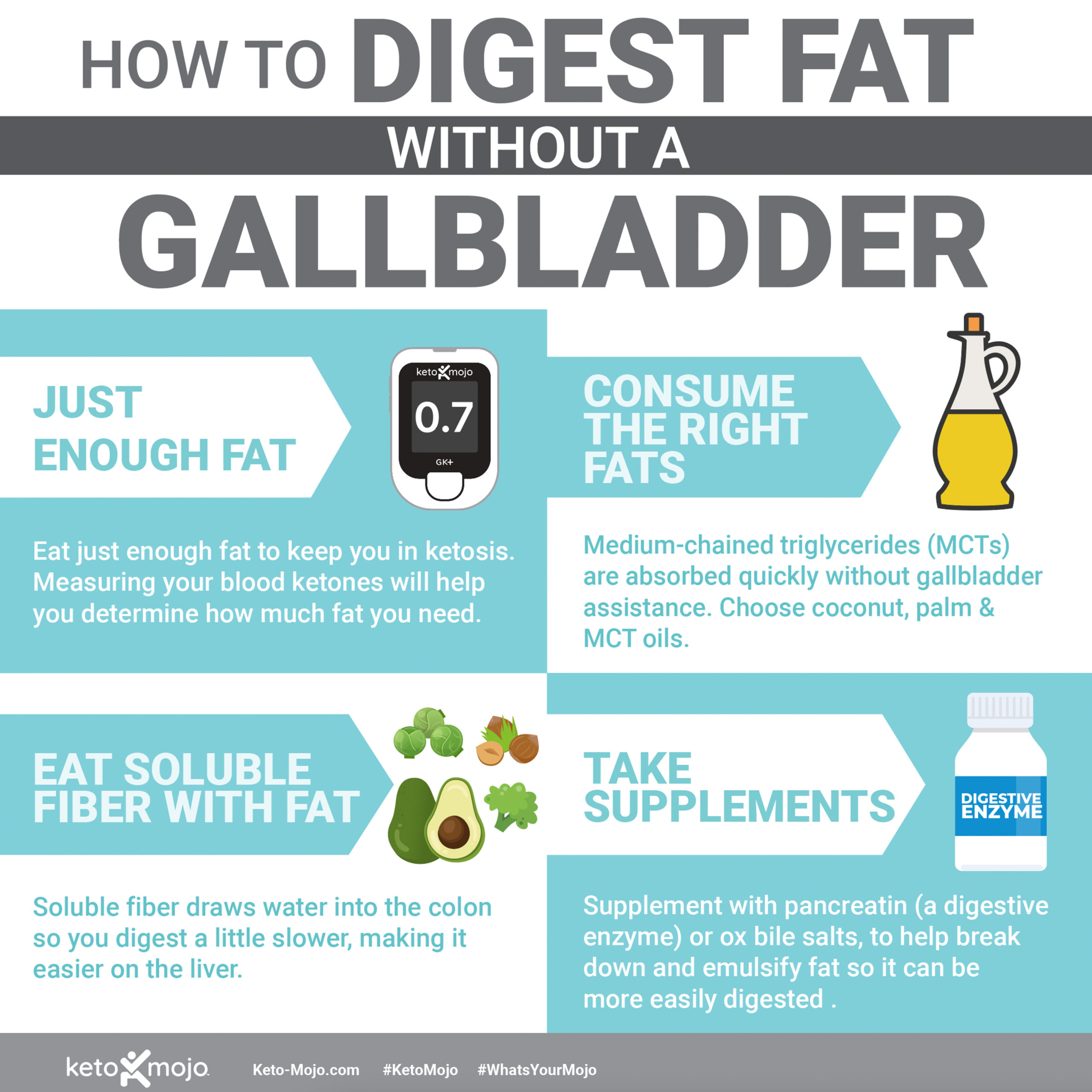Gallstones affect approximately 10%-15% of the adult population, often unnoticed until they cause discomfort. Transitioning to a keto diet, renowned for its high fat, low carbohydrate regimen, prompts concerns about the formation of new gallstones due to increased bile production. Can this popular diet coexist with a gallstone-free life?
Historically, diets lacking in fiber and abundant in unhealthy fats have been linked to gallstone formation. The keto diet, however, emphasizes healthier fat sources like avocados, nuts, and olive oil, which may mitigate this risk. Research suggests consuming adequate hydration and fiber, alongside these healthy fats, can support bile flow and reduce gallstone complications during a keto diet.
- Stay hydrated by drinking at least eight glasses of water daily.
- Incorporate fiber-rich vegetables like spinach and broccoli into your meals.
- Choose healthy fats such as avocados, nuts, and olive oil.
- Avoid rapid weight loss by moderating calorie deficit.
- Regularly monitor your health with check-ups and blood tests.

Decoding the Connection Between Keto Diet and Gallstones
The Keto diet is a low-carb, high-fat diet that helps many people lose weight quickly. By reducing carbs drastically, the body enters a state called ketosis. In ketosis, the body uses fat for fuel instead of carbs.
Gallstones are hard deposits that form in the gallbladder. They can cause severe pain and other complications. Many wonder if the high-fat intake on Keto increases the risk of gallstones.
Studies show that rapid weight loss can indeed lead to gallstones. However, the type of fat consumed on a Keto diet plays a crucial role. Healthy fats like avocados and olive oil are less likely to cause problems.
Balancing fat intake with fiber and hydration can help. Drinking plenty of water and including fibrous vegetables can aid in digestion. This balance is key to preventing gallstones while on Keto.
Tips to Prevent Gallstone Formation on Keto Diet
Preventing gallstones while on a Keto diet involves strategic planning. Focus on hydration, proper fat intake, and a balanced diet. These tips can help maintain gallbladder health.
Stay Hydrated
Drinking enough water is essential on a Keto diet. Hydration aids in bile production, which helps break down fats. Aim for at least eight glasses of water daily.
Water also helps to keep the gallbladder working smoothly. It flushes toxins and supports overall digestive health. Staying hydrated should be a top priority.
Choose Healthy Fats
Types of fat matter when it comes to gallstone prevention. Healthy fats like those found in avocados and nuts are better choices. Unlike unhealthy fats, they are less likely to cause gallstone issues.
Include sources of omega-3 fatty acids. These are found in fish and flaxseeds. They support heart and gallbladder health.
Include Fiber-Rich Foods
Fiber helps keep the digestive system functioning well. Vegetables and low-carb fruits are excellent sources. They can help reduce the likelihood of developing gallstones.
| Fiber-Rich Foods | Keto-Friendly Options |
|---|---|
| Leafy Greens | Spinach, Kale |
| Nuts | Almonds, Walnuts |
A balanced intake of fats and fiber can make the difference. Include a variety of sources to keep your diet interesting and healthy. This approach supports the overall goals of a Keto diet.
Integrating Fiber-Rich Foods into your Keto Diet
Adding fiber-rich foods to a Keto diet can be tricky. However, it is doable with the right choices. Fiber is crucial for a healthy digestive system and can reduce the risk of gallstones.
One way to boost your fiber intake is to add nuts and seeds.
- Chia seeds
- Flaxseeds
- Almonds
These options provide both fiber and healthy fats. They are perfect for snacking or adding to meals.
Vegetables are also essential in a Keto diet for fiber. Aim for leafy greens like spinach and kale. Other options include broccoli and cauliflower, which are low-carb and high-fiber.
| Vegetable | Fiber Content per 100g |
|---|---|
| Spinach | 2.2g |
| Broccoli | 2.6g |
Including fiber in every meal helps keep the digestive system in check. This not only benefits your gut but also supports overall health. The balance between fiber, fats, and carbs is key!
Understanding Healthy Fats versus Unhealthy Fats
Fats are a crucial part of our diet, especially on Keto. But not all fats are created equal. There are healthy fats and unhealthy fats that affect the body differently.
Healthy fats are good for your heart and overall well-being. These include monounsaturated and polyunsaturated fats. You can find these in foods like nuts, avocados, and fish.
Unhealthy fats, on the other hand, can cause health problems. Saturated fats and trans fats fall into this category. Common sources are fried foods, baked goods, and fatty cuts of meat.
Choosing healthy fats helps you maintain better health. Healthy fats support your body by providing essential fatty acids and helping with nutrient absorption. They also play a role in brain function.
Unhealthy fats not only raise cholesterol levels but can also lead to heart disease. It’s important to limit these in your diet. This balance can impact your long-term health.
- Avoid fried foods
- Choose lean meats
- Incorporate more nuts and seeds
Understanding the difference between healthy and unhealthy fats helps you make better dietary choices. On Keto, this is especially important. Eating the right fats keeps you on track with your health goals.
Monitoring Your Health While on Keto Diet
Being on a Keto diet can offer many health benefits, but it’s important to monitor your health. Regular check-ups can provide valuable insights. They help track progress and identify any potential issues early.
One of the key aspects to monitor is keto flu. Symptoms like headaches and fatigue can occur when starting the diet. Staying hydrated and supplementing electrolytes can help alleviate these symptoms.
It’s also essential to track your nutrient intake. Using apps or journals can help with this. Make sure you’re getting enough vitamins and minerals alongside your macros.
Your cholesterol levels should be checked periodically. While on Keto, some people experience changes in cholesterol. These checks help ensure you’re keeping a healthy balance.
- Schedule regular blood tests
- Monitor weight and body composition
- Keep an eye on energy levels
Consulting with a healthcare provider can offer more personalized advice. They can help adjust your diet as needed. This keeps you on track and ensures you’re doing what’s best for your body.
Case Studies: Success Stories of Managing Gallstone-Risk on Keto Diet
Many people have successfully managed their gallstone risk while on a Keto diet. John, a 45-year-old engineer, found that balancing hydration and fiber helped immensely. His regular check-ups showed no new gallstone formation.
Sarah, a 30-year-old teacher, thrived by including healthy fats. She focused on avocados, nuts, and olive oil. Her gallbladder health improved, and she experienced fewer digestive issues.
Another success story is Maria, a 50-year-old chef. She diligently monitored her nutrient intake. Maria balanced her diet with plenty of leafy greens, which kept her digestive system functioning well.
- John: balanced hydration and fiber
- Sarah: included healthy fats
- Maria: monitored nutrient intake
These case studies highlight the importance of a balanced approach to the Keto diet. By focusing on hydration, healthy fats, and nutrient-rich foods, you can manage your gallstone risk effectively. It’s encouraging to see real-life examples of success!
Key Takeaways
- Stay hydrated to support digestion and prevent gallstones.
- Include fiber-rich veggies like spinach in your Keto meals.
- Choose healthy fats such as avocados and nuts.
- Avoid rapid weight loss by moderating your calorie deficit.
- Regularly check up on your health with visits to the doctor.
:max_bytes(150000):strip_icc()/Health-Healthy-Gallbladder-Stocksy_Medium_2616427.Horiz-V1-d4327456b3c94e24bf3c1d885a06531c.jpg)
Frequently Asked Questions
Curious about maintaining gallbladder health on a Keto diet? Check out these commonly asked questions and clear, concise answers to help you stay informed.
1. What are gallstones, and how do they affect the body?
Gallstones are hardened deposits that form in your gallbladder. They can be as small as a grain of sand or as large as a golf ball. Gallstones can block the bile ducts, causing severe pain and discomfort. In some cases, they can lead to serious complications like infection or pancreatitis.
The presence of gallstones often requires medical attention. Some people have silent stones that don’t cause symptoms. However, if you experience severe pain in your upper abdomen, see a doctor. Early detection helps manage the condition effectively.
2. Can a high-fat diet increase the risk of gallstones?
A high-fat diet can indeed increase the risk of gallstone formation. Fats stimulate your liver to produce more bile, sometimes leading to gallstones when there is an imbalance. However, not all fats are created equal; consuming healthy fats is key to reducing risks.
Healthy fats like those found in avocados and nuts are preferable for overall wellness. Avoid unhealthy fats from fried foods and processed snacks. Balancing your fat intake with healthy choices mitigates adverse effects while on a Keto diet.
3. How does rapid weight loss impact gallstone formation?
Rapid weight loss is another factor that can contribute to the formation of gallstones. When you lose weight quickly, your body secretes extra cholesterol into the bile system, forming stones more easily.
A slower rate of weight loss reduces this risk significantly. Aim for steady progress rather than extreme dietary changes or fasting methods. This approach protects your gallbladder while allowing you to enjoy Keto’s benefits safely.
4. Are there specific foods I should avoid on Keto to prevent gallstones?
Avoiding certain foods helps minimize your risk of developing gallstones while on a Keto diet. High-fat dairy products and fried fast foods top this list due to their unhealthy fat content.
Sugar-rich foods should also be avoided, including sugary drinks and snacks that add unnecessary carbs and calories without nutritional benefits. Instead, opt for nutritious alternatives like lean proteins and fibrous vegetables that support good digestive health.
5. Is it safe to follow a Keto diet if I’m already prone to gallstones?
If you’re prone to gallstones but want to follow a Keto diet, it’s crucial first to consult with a healthcare provider who understands both conditions well enough for tailored advice.
Your doctor may recommend dietary adjustments or supplements that make following keto safer despite being at-risk.
An expert-guided approach ensures balanced nutrition without compromising kidney function.

Conclusion
Managing gallstone risk while on a Keto diet requires a balanced approach. By choosing healthy fats, staying hydrated, and incorporating fiber-rich foods, you can enjoy the benefits of Keto without compromising your gallbladder health. Regular check-ups and monitoring are also crucial.
Always consult with healthcare providers to tailor the diet to your specific needs. This ensures you get the most out of Keto while safeguarding your health. Following these strategies can help you achieve your dietary goals safely and effectively.
